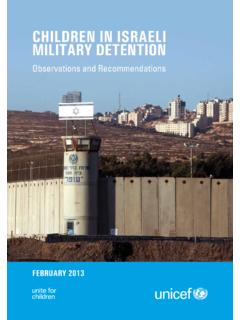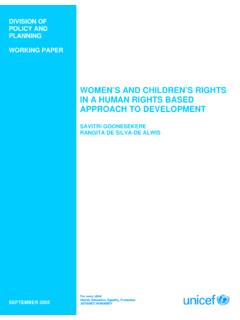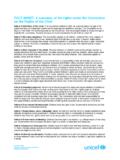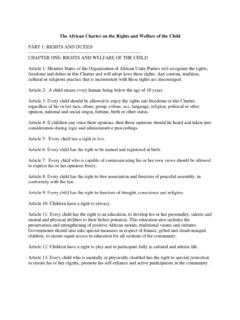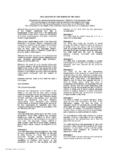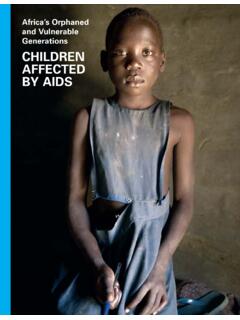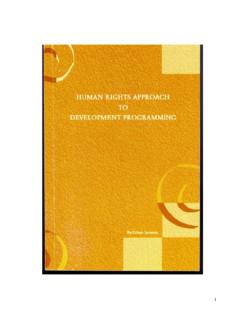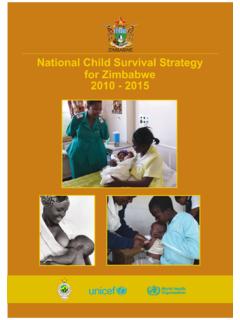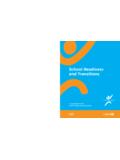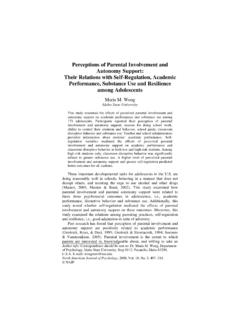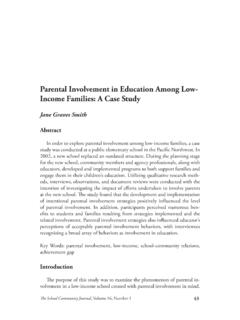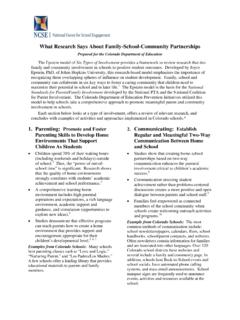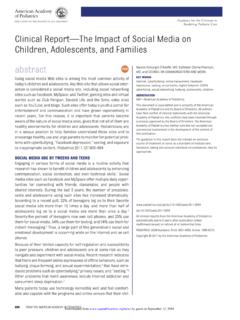Transcription of Defining Quality in Education - Home page | UNICEF
1 Defining Quality in EducationA paper presented by UNICEF at the meeting ofThe International Working Group on Education Florence, ItalyJune 2000 Working Paper SeriesEducation SectionProgramme DivisionUnited Nations Children's FundNew York, NY, USA1 Defining Quality in EducationCopyright 2000 United Nations Children s Fund3 United Nations Plaza, H-7 New York, NY 10017A publication of UNICEFP rogramme DivisionEducationDocument No. UNICEF /PD/ED/00/02 The principal researcher for this paper was Jeanette Colby, Miske Witt and Associates, forthe Education Section, Programme Division, UNICEF New Papers are working documents. They present new ideas, innovative approaches,case studies, bibliographies and research results, prepared either by UNICEF staff or byconsultants or others supported by UNICEF .
2 Their purpose is to facilitate the rapidexchange of knowledge and perspectives among field offices and to stimulate contents of this working paper do not necessarily reflect the policies or the views typescript has not been edited to official publications standards, and UNICEF acceptsno responsibility for designations employed in this publication and the presentation of the material do notimply on the part of the United Nations Children s Fund the expression of any opinionwhatsoever concerning the legal status of any country or territory, or of its authorities, orthe delimitations of its further information please contact.
3 The Chief, Education Section, Programme DivisionUNICEF, 3 United Nations Plaza, H-7 New York, New York 10017 USATel ( ) ( ) SummaryDuring the past decade much has been done globally to provide Quality basic Education forchildren, an obligation for the Convention on the Rights of the reviewing the research literature related to Quality in Education , UNICEF takes abroader perspective and demonstrates by this analysis that programmes must encompass abroader definition involving learners, content, processes, environments and have a right to an Education , a Quality Education includes: Learners who are healthy, well-nourished and ready to participate and learn, andsupported in learning by their families and communities; Environments that are healthy, safe, protective and gender-sensitive, and provideadequate resources and facilities; Content that is reflected in relevant curricula and materials for the acquisition ofbasic skills, especially in the areas of literacy, numeracy and skills for life, andknowledge in such areas as gender, health, nutrition, HIV/AIDS prevention andpeace.
4 Processes through which trained teachers use child-centred teaching approaches inwell-managed classrooms and schools and skilful assessment to facilitate learningand reduce disparities. Outcomes that encompass knowledge, skills and attitudes, and are linked tonational goals for Education and positive participation in definition allows for an understanding of Education as a complex system embedded ina political, cultural and economic context. (This paper examines research related to thesedimensions). It is important to keep in mind Education s systemic nature, however; thesedimensions are interdependent, influencing each other in ways that are paper will be important for UNICEF Education Officers to read as they planprogrammes that focus on enhancing the Quality of Education programmes.
5 Knowledge ofwhat has been done in the name of Quality Education around the world, and what theoutcomes have been, will be useful background information for Programme RasheedDirector Programme DivisionUNICEF Headquarters, New YorkOctober 20004 Defining Quality in EducationIntroductionIn all aspects of the school and its surrounding Education community, therights of the whole child, and all children, to survival, protection,development and participation are at the centre. This means that the focus ison learning which strengthens the capacities of children to act progressivelyon their own behalf through the acquisition of relevant knowledge, usefulskills and appropriate attitudes; and which creates for children, and helpsthem create for themselves and others, places of safety, security and healthyinteraction.
6 (Bernard, 1999)What does Quality mean in the context of Education ? Many definitions of Quality ineducation exist, testifying to the complexity and multifaceted nature of the concept. Theterms efficiency, effectiveness, equity and Quality have often been used synonymously(Adams, 1993). Considerable consensus exists around the basic dimensions of qualityeducation today, however. Quality Education includes: Learners who are healthy, well-nourished and ready to participate and learn,and supported in learning by their families and communities; Environments that are healthy, safe, protective and gender-sensitive, andprovide adequate resources and facilities; Content that is reflected in relevant curricula and materials for the acquisitionof basic skills, especially in the areas of literacy, numeracy and skills for life,and knowledge in such areas as gender, health, nutrition, HIV/AIDS prevention and peace.
7 Processes through which trained teachers use child-centred teachingapproaches in well-managed classrooms and schools and skilful assessmentto facilitate learning and reduce disparities; Outcomes that encompass knowledge, skills and attitudes, and are linked tonational goals for Education and positive participation in definition allows for an understanding of Education as a complex system embedded ina political, cultural and economic context. This paper will examine research related tothese dimensions. It is important to keep in mind Education s systemic nature, however;these dimensions are interdependent, influencing each other in ways that are definition also takes into account the global and international influences that propelthe discussion of educational Quality (Motala, 2000; Pipho, 2000), while ensuring that5national and local educational contexts contribute to definitions of Quality in varyingcountries (Adams, 1993).
8 Establishing a contextualized understanding of Quality meansincluding relevant stakeholders. Key stakeholders often hold different views and meaningsof educational Quality (Motala, 2000; Benoliel, O Gara & Miske, 1999). Indeed, each ofus judges the school system in terms of the final goals we set for our children ourcommunity, our country and ourselves (Beeby, 1966).Definitions of Quality must be open to change and evolution based on information,changing contexts, and new understandings of the nature of Education s challenges. Newresearch ranging from multinational research to action research at the classroom level contributes to this that embrace change through data generation, use and self-assessment are morelikely to offer Quality Education to students (Glasser, 1990).
9 Continuous assessment andimprovement can focus on any or all dimensions of system Quality : learners, learningenvironments, content, process and outcomes. Each of these will be discussed Quality LearnersSchool systems work with the children who come into them. The Quality of children s livesbefore beginning formal Education greatly influences the kind of learners they can elements go into making a Quality learner, including health, early childhoodexperiences and home health and and psychosocially healthy children learn well. Healthy development in earlychildhood, especially during the first three years of life, plays an important role inproviding the basis for a healthy life and a successful formal school experience (McCain &Mustard, 1999).
10 Adequate nutrition is critical for normal brain development in the earlyyears, and early detection and intervention for disabilities can give children the bestchances for healthy development. Prevention of infection, disease and injury prior toschool enrolment are also critical to the early development of a Quality childhood psychosocial development early experiences and interactions are also vital to preparing a Quality learner. Alarge study in 12 Latin American countries found that attendance at day care coupled withhigher levels of parental involvement that includes parents reading to young children isassociated with higher test scores and lower rates of grade repetition in primary school(Willms, 2000).
